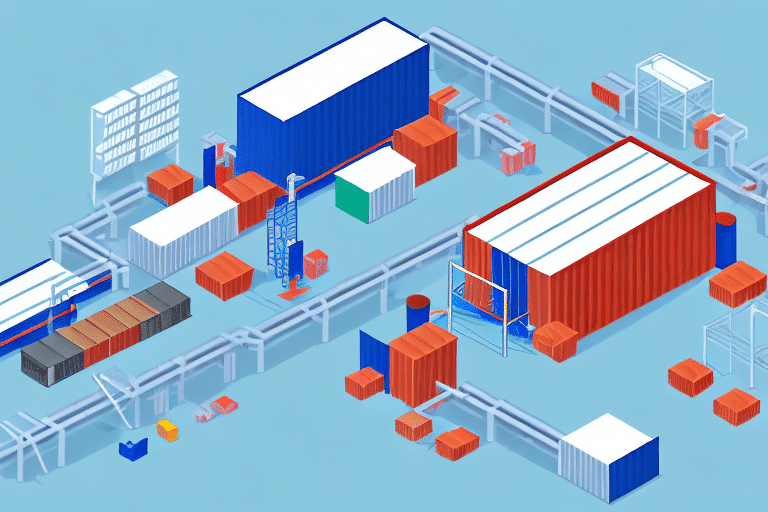Maximizing Efficiency with B2B Fulfillment
In the competitive landscape of ecommerce, B2B fulfillment plays a pivotal role in ensuring seamless business operations. Efficient fulfillment processes not only enhance customer satisfaction but also contribute significantly to a company's bottom line. This guide delves into the intricacies of B2B fulfillment, exploring various models, strategies, and the role of technology in optimizing these operations.
Understanding B2B Fulfillment
What is B2B Fulfillment?
B2B fulfillment encompasses the storage, management, and distribution of products between businesses and their partners or customers. It involves processes such as order receiving, inventory management, packaging, and delivery. Effective B2B fulfillment ensures that products are delivered accurately and promptly, maintaining the trust and satisfaction of business clients.
Importance of B2B Fulfillment
Efficient B2B fulfillment is crucial for maintaining competitive advantage. According to a Statista report, the global B2B e-commerce market is projected to reach $25.6 trillion by 2028, highlighting the growing significance of streamlined fulfillment processes.
Different Models of B2B Fulfillment
In-House Fulfillment
In-house fulfillment involves managing inventory and order processing within the organization. This model offers greater control and flexibility but requires substantial investment in infrastructure and personnel.
Third-Party Logistics (3PL)
Third-Party Logistics (3PL) providers handle various aspects of fulfillment, including storage, transportation, and order management. Utilizing a 3PL can lead to cost savings and access to advanced logistics expertise.
Drop-Shipping
Drop-shipping involves partnering with suppliers who directly ship products to customers on behalf of the business. This model reduces the need for inventory storage but may result in longer shipping times and less control over the delivery process.
Key Components of an Efficient Fulfillment Strategy
Inventory Management
Accurate inventory management ensures product availability and reduces the risk of stockouts or overstocking. Implementing real-time tracking systems can enhance visibility and decision-making.
Order Processing
Streamlined order processing minimizes errors and accelerates order fulfillment. Automation tools, such as order management systems, can significantly improve efficiency.
Packaging and Shipping
Proper packaging protects products during transit, while selecting the right shipping partners ensures timely and reliable delivery. Sustainable packaging solutions are also gaining importance for their environmental benefits.
The Role of Technology in B2B Fulfillment
Automation and AI
Automation technologies, including robotics and artificial intelligence, play a critical role in optimizing fulfillment processes. These technologies enhance accuracy, speed, and scalability.
Data Analytics
Leveraging data analytics provides valuable insights into customer behavior, inventory trends, and operational performance. Businesses can make data-driven decisions to enhance their fulfillment strategies.
Integration with E-commerce Platforms
Seamless integration with e-commerce platforms ensures synchronization between sales channels and fulfillment operations, reducing discrepancies and improving efficiency.
Outsourcing Fulfillment Operations
Benefits of Outsourcing
- Cost savings through reduced overhead and labor expenses
- Access to specialized logistics expertise and advanced technologies
- Scalability to accommodate business growth and seasonal fluctuations
Choosing the Right Fulfillment Partner
Selecting a reliable fulfillment partner involves evaluating their capability to handle your business volume, industry expertise, technological infrastructure, and customer service quality. It's essential to establish clear communication channels and set performance benchmarks.
Current Trends and Future of B2B Fulfillment
Sustainability Practices
There is a growing emphasis on sustainable fulfillment practices, including the use of eco-friendly packaging and reducing carbon footprints through optimized transportation methods.
Blockchain and IoT
Emerging technologies like blockchain and the Internet of Things (IoT) are revolutionizing supply chain transparency and traceability, enhancing security and efficiency in fulfillment operations.
Enhanced Customer Experience
Businesses are prioritizing customer experience by offering real-time order tracking, flexible delivery options, and personalized services to meet the evolving demands of B2B clients.
Best Practices for Managing Inventory
- Maintain Accurate Stock Levels: Regular audits and real-time tracking systems help in maintaining precise inventory counts.
- Optimize Inventory Turnover: Balancing inventory levels to meet demand without overstocking.
- Implement Just-In-Time (JIT) Inventory: Reducing holding costs by aligning inventory orders closely with production schedules.
Optimizing Shipping and Delivery
To enhance shipping efficiency, businesses should:
- Choose reliable transportation partners
- Utilize shipping automation tools for label printing and tracking
- Offer multiple delivery options to cater to different customer needs
Measuring Success: Key Metrics
Assessing the effectiveness of your B2B fulfillment strategy involves monitoring the following metrics:
- Order Accuracy: Percentage of orders fulfilled correctly
- On-Time Delivery Rate: Timeliness of order deliveries
- Inventory Turnover: Frequency at which inventory is sold and replaced
- Customer Satisfaction: Feedback and repeat business from clients
Overcoming Common Challenges in B2B Fulfillment
B2B fulfillment can present several challenges, including:
- Order Delays: Mitigated by efficient order processing and reliable shipping partners
- Inventory Inaccuracies: Addressed through robust inventory management systems and regular audits
- Shipping Errors: Reduced by automation and stringent quality control measures
Proactive communication and continuous process improvement are essential in overcoming these challenges.
Case Studies: Successful B2B Fulfillment Strategies
Examining successful B2B fulfillment strategies from industry leaders provides actionable insights:
Amazon
Amazon's advanced logistics network and use of automation technologies ensure rapid and accurate order fulfillment, setting high standards in the industry.
Walmart
Walmart leverages its extensive distribution centers and real-time inventory systems to maintain efficient fulfillment operations, catering to a vast B2B and B2C customer base.
The Future of B2B Fulfillment
The B2B fulfillment landscape is evolving with technological advancements and changing market demands. Key future trends include:
- Increased Automation: Greater adoption of robotics and AI to enhance operational efficiency
- Enhanced Data Integration: Utilizing big data for predictive analytics and strategic decision-making
- Focus on Sustainability: Implementing greener practices to meet environmental standards and customer expectations
Staying abreast of these trends will enable businesses to adapt and thrive in the dynamic B2B fulfillment environment.
Conclusion
Efficient B2B fulfillment is a cornerstone of successful ecommerce operations. By understanding the various fulfillment models, implementing best practices in inventory and shipping management, leveraging technology, and choosing the right partners, businesses can optimize their fulfillment processes. Keeping up with emerging trends and continuously measuring performance ensures sustained competitiveness and high levels of customer satisfaction.








